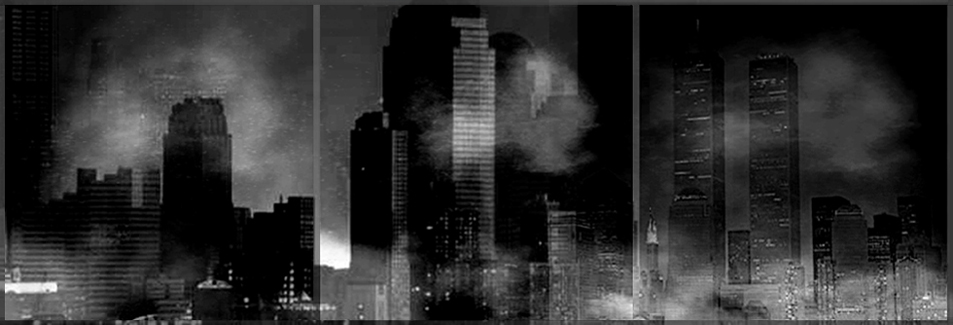| > |
91. The Promise Land
Written & performed by Cedar Walton
From the CD The Promise Land (High Note, USA 2001)
…and here are a few things that took place in America around (and after) the time of the recording of Walton’s return to the theme of the Promise(d) Land:
In January 2001 President-elect George Bush nominated Colin Powell Secretary of State. Condoleezza Rice was made National Security Advisor. This was the first time either of these posts had been held by an African American. [1]
Rice and Powell went on to play significant roles in American foreign policy after the events of September 11 2001: On Thursday, February 6, 2003 Powell, addressing the U.N, told the world: ‘The facts and Iraq’s behaviour show that Saddam Hussein and his regime are concealing their efforts to produce more weapons of mass destruction. For Saddam Hussein, possession of the world’s most deadly weapons is the ultimate trump card, the one he must hold to fulfil his ambition. We know that Saddam Hussein is determined to keep his weapons of mass destruction; he’s determined to make more.’ [2]
Here’s Rice, speaking on the same subject, in an interview on Germany’s ZDF television on July 31, 2003: ‘Going into the war against Iraq, we had very strong intelligence. I’ve been in this business for 20 years. And some of the strongest intelligence cases that I’ve seen, key judgments by our intelligence community that Saddam Hussein could have a nuclear weapons by the end of the decade, if left unchecked.’ [3]
On August 13 2003, Boston Globe reporter Derrick Z. Jackson noted that ‘Speaking last week before the National Association of Black Journalists, Rice said, ‘Let us be very clear about why we went to war against Saddam Hussein. Saddam Hussein’s regime posed a threat to the security of the United States and the world. This was a regime that had pursued, had used, and possessed weapons of mass destruction.’ [4]
Subsequent events would prove Rice and Powell’s claims to be unfounded.
We don’t know what Dion Tyrone Diamond was doing in the early 2000s or what his thoughts were on Rice, Powell, the war in Iraq, and the question of weapons of mass destruction. What we do know is that he participated in a two-day student forum in 2008 at the Thurgood Marshall Center for Service and Heritage in Washington, in which he and other former Freedom Riders shared their experiences of desegregating America’s Southern states. [5] Diamond described to his audience the remarkable restraint necessary for the success of the non-violent approach to political transformation, recalling a time when he was picketing a lunch counter in Arlington, Virginia; ‘Here is this little punk kid, [who said], ‘you nigger’’, Diamond remembered. ‘Of course, what I really wanted to do was punch him.’ [6] The reserve displayed by Diamond and his fellow young activists in these and other far more brutal instances ensured the Civil Rights movement a victory which, at the time, was in no way guaranteed. Mr. Diamond, we salute you!
Sources
[1] http://www.blackpast.org/?q=timelines/african-american-history-timeline-2001
[2] Transcript of Colin Powell’s
U.N. presentation, CNN.com/UShttp://www.cnn.com/2003/US/02/05/sprj.irq.powell.transcript/
[3] ‘Uncovered: The War on Iraq. Timeline: The Bush Administration’s
Justification for War’,http://www.truthuncovered.com/timeline.php
[4] ‘Questions for Condoleezza’, by D.Z Jackson, Boston
Globe, reported in http://www.commondreams.org/views03/0813-02.htm
[5 & 6] ‘Capture the Moment: Freedom Riders Teach from Their
Experiences’, by Joseph Young, The
Washington Informer, on the website of Patchwork
Films – Award Winning West Virginia Documentaries http://www.patchworkfilms.com/joanfreedomriders.htm
| < | > |
